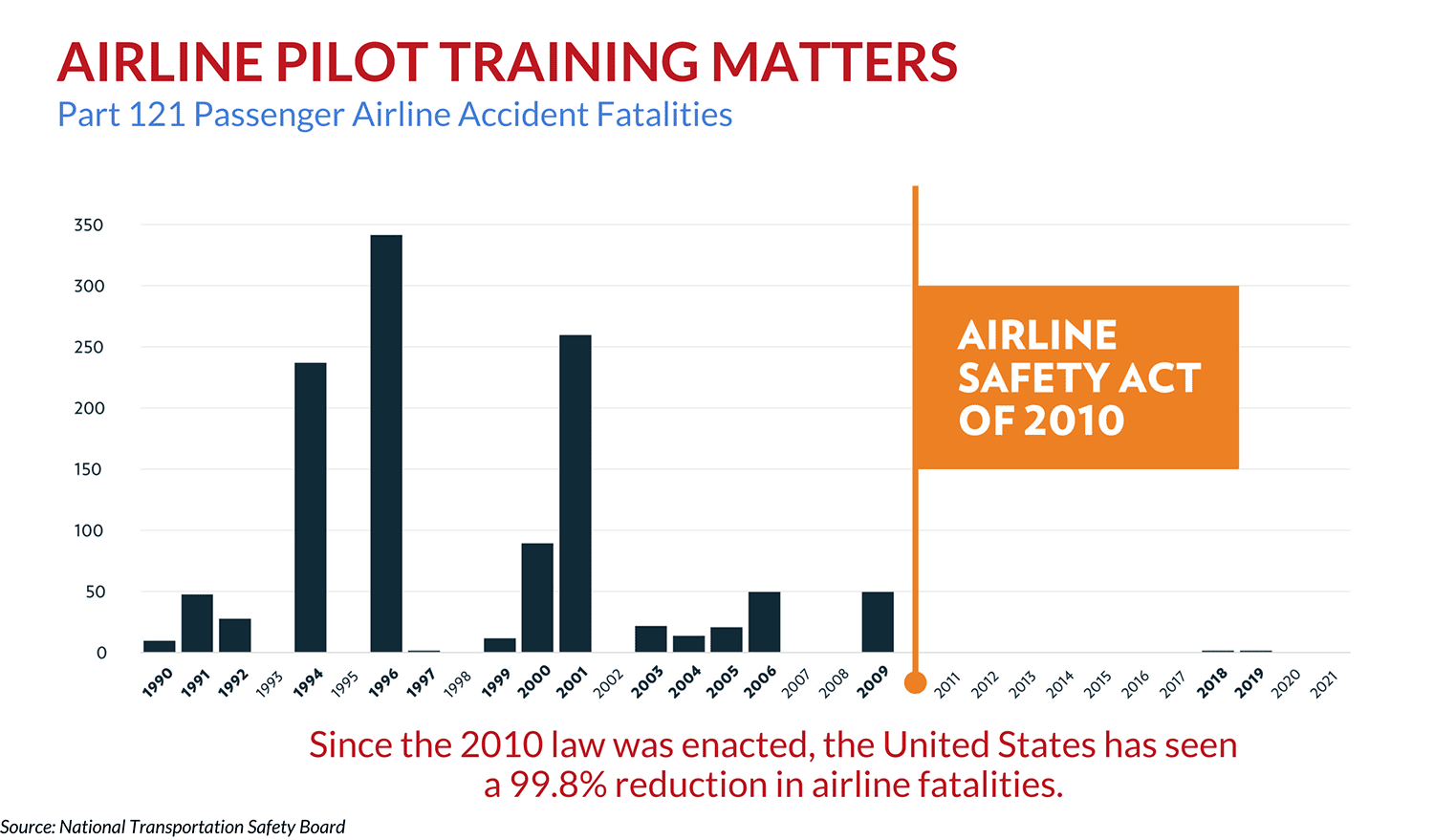Release #: 22.26
July 29, 2022
ALPA Urges Congress to Maintain High Standards for Pilot Qualifications and Training
Identifies Issue as Top Aviation Safety Priority
MCLEAN, Va.—On the eve of the 12-year anniversary of the Airline Safety and Federal Aviation Administration Extension Act of 2010 being signed into law, the Air Line Pilots Association, Int’l (ALPA), the world’s largest nongovernmental aviation safety organization, called on Congress to maintain the Act’s strong pilot qualification and training requirements. Identifying this “as the highest priority” for the upcoming reauthorization of the Federal Aviation Administration (FAA), ALPA continues to push back on the false “pilot shortage” narrative being used by special interest groups in an attempt to weaken or undermine the single most-effective aviation safety feature on their aircraft: two highly trained, fully qualified pilots.
“On August 1, this nation marks the 12th anniversary of one of the most effective aviation safety measures in U.S. history becoming law—a law that has reduced U.S. airline passenger fatalities by 99.8 percent,” wrote Capt. Joe DePete, ALPA president, in a letter to Congress. “Protecting these lifesaving regulations—and fighting any effort to weaken, reinterpret, or avert them—will continue to serve as the Association’s highest priority as you and other lawmakers consider the next FAA reauthorization in both the 117th and 118th Congress.”
ALPA has also launched an aggressive, multi-platform education campaign highlighting the extraordinary aviation safety improvements realized since the 2010 law was enacted.
“No organization is more committed than ALPA to ensuring that our airlines have an adequate supply of highly skilled and trained pilots—and they must have the qualifications, experience, and training they need to perform their jobs safely. ALPA will give no ground to those who seek, through misdirection or falsehoods, to undermine or weaken the requirements and the contribution they make to one level of safety across the system,” continued DePete.
ALPA has always been a strong advocate for the 2010 law that required an overhaul in the training, qualifications and minimum experience requirements for airline pilots. According to National Transportation Safety Board data, since the law’s enactment, Part 121 passenger airline fatalities have decreased by 99.8 percent.

Unfortunately, some airlines continue to use the fictitious claim that there is a lack of available pilots to try to weaken training and safety standards and distract from their profit-first business decisions to cut service and hire inexperienced aviators for less pay instead of focusing on changes to fundamental issues associated with these profit-driven business models. The companies claim, among other things, that the first officer qualification and pilot training requirements mandated by Congress discourage potential airline pilots and are the cause for service cuts to rural communities.
Founded in 1931, ALPA is the largest airline pilot union in the world and represents more than 65,000 pilots at 40 U.S. and Canadian airlines. Visit ALPA.org or follow us on Twitter @ALPAPilots.
-###-
CONTACT: ALPA Media, 703-481-4440 or Media@alpa.org


